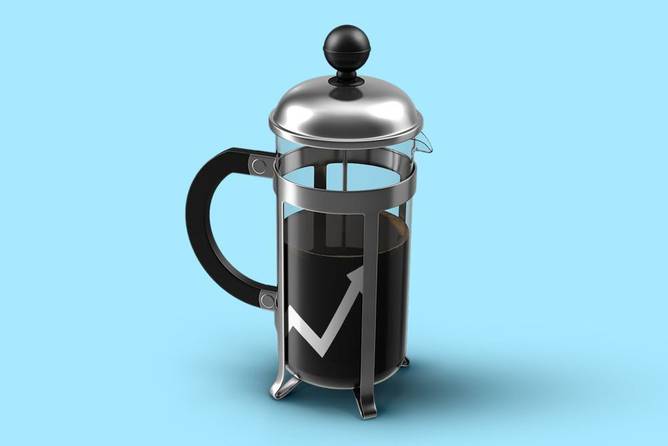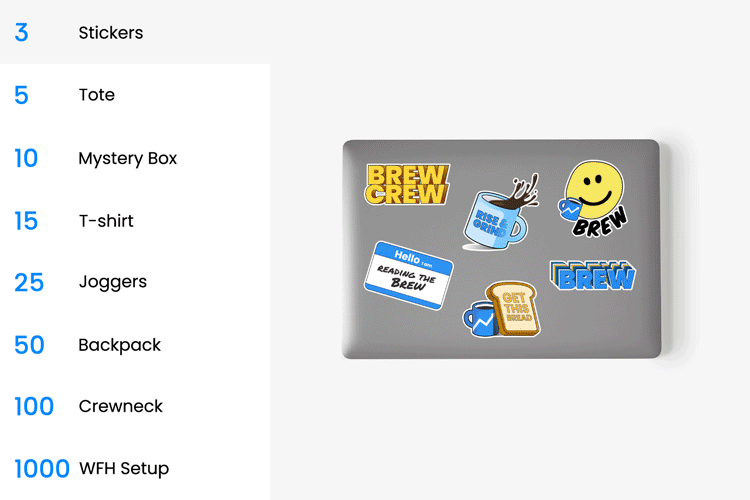It’s Martin Luther King Jr. Day, the only federal holiday that’s designated as an official national day of service. If you’re looking for volunteer opportunities, you can find one (or more!) through Americorps.
In today’s edition:
—Alyssa Meyers, Maia Anderson, Jasmine Sheena, Andrew Andy Newman
|
|
Francis Scialabba
Healthcare systems are notoriously slow to change (hence fax machines still being used)—and hospital marketing is no exception.
Many hospitals continue to use traditional marketing tactics like billboards and newspapers. But with advances in technology, such as artificial intelligence (AI), and the rapid changes the healthcare industry underwent during Covid-19, hospital marketing has started to innovate and adapt to the new advertising landscape.
The future of hospital marketing may target more nontraditional media outlets like TikTok and Netflix, have a personalized approach to messaging, and use AI to target intended audiences, experts told Healthcare Brew.
“When we think about the future of healthcare, the brands that are going to be really successful are the ones that are going to be able to tie in the science—whether that’s AI or telehealth, maybe it’s innovation—and humanity,” Michael Baron, SVP and group creative director of full-service marketing agency Mower, said.
Open the door: During the pandemic, some hospital marketers used a strategy not very common in the marketing world: telling people not to use their product unless absolutely necessary.
- The goal then was to avoid patient overflow to hospitals, but as patient volumes have since stabilized, health systems need to “re-attract” those patients, according to Paul Jaglowski, cofounder and chief strategy officer at patient experience management company Feedtrail.
Hospital marketers are now focusing on messaging that’s designed to ease consumer fears and let them know it’s safe to seek treatment, said Erin DeRuggiero, chief digital officer at advertising company Swoop.
- “The marketing really needs to adjust and to flex, to speak to the fact that people might be more reticent to come in because some people are still fearing that primary care interaction, or preventative care interaction, because it’s been delayed so long,” she said.
Read more on the future of hospital marketing here.—AM, MA
|
|
When you’re building a business or charting your own path in your career, it can be difficult to discern when roadblocks are challenges to push you further…or redirections that are begging you to go down a different path.
In this episode of BOSSY, Tara and Katie break down the most masterful business comebacks, accelerating out of stagnant career slumps, and when it’s time to rebrand “quitting” to “pivoting.”
|
|
The Female Quotient
Shelley Zalis founded The Female Quotient in 2015 with a simple mission: Work with companies to spotlight women and women’s issues.
“According to the World Economic Forum, it’ll take another 131 years to close the gender gap. For us, there’s no way that we will wait that long,” Zalis said.
Nearly ten years since its creation, The Female Quotient has grown to 1.6 million followers on Instagram, Talia Bender Small, the group’s president, noted. The organization, which has a staff count under 30, has worked with several big brands to bring attention to topics relevant to women inside and outside the workplace.
Package deal: One such company is consulting firm Deloitte, which partnered with The Female Quotient to highlight women working in cybersecurity. The partnership aimed to honor women such as the chief information security officers of CVS Health and United Airlines.
- Together, Deloitte and The Female Quotient coordinated an event in the fall that brought together women in the industry over cocktails in London.
- They also facilitated a panel on LinkedIn featuring women talking about their experiences in the industry, as well as overall overseeing the related media and social campaigns.
Another company The Female Quotient has worked with is Netflix. The streaming giant partnered with the group to help promote a recent film called Fair Play.
-
The film, which centers on what happens to a romantic relationship between two co-workers after one is promoted, explores patriarchy among its themes. Zalis sat down with Fair Play writer and director Chloe Domont on LinkedIn Live to discuss Fair Play.
Read more about The Female Quotient here.—JS
|
|
Blueland
A critical moment for many successful retail brands comes when they contemplate going public, weighing an IPO’s massive infusion of cash against the likelihood of shareholders storming into the car and becoming cacophonous backseat drivers.
For DTC brands, there’s a similar fish-or-cut-bait moment when it comes to partnering with retailers to be sold in stores. The potentially huge growth in sales from being on shelves, while tempting, risks brands losing the direct consumer connection and insight that is the hallmark of DTC brands.
Sarah Paiji Yoo, CEO and co-founder of DTC sustainable cleaning- and personal-care-products brand Blueland, said that after launching in 2019, she committed to eschewing selling wholesale to retailers for three years.
But the retailers came courting anyway.
“We had all of our dream retailers reach out to us, asking us to engage in a conversation, asking us if we’re interested in retail, and it was very hard and took a lot of discipline to say no,” Yoo told Retail Brew.
A big reason the brand did say no, Yoo explained, is that its products are atypical compared with other household and personal cleaning product brands. To avoid single-use plastics, Blueland sells empty glass or reusable plastic bottles for liquid soap and spray cleaner (dubbed Forever Bottles) paired with tablets—packaged in compostable paper packaging—that can be reconstituted in the bottles by adding water.
- Since this was a “brand new behavior for consumers” and a “brand new format for the categories,” Blueland “needed to really have that direct relationship with customers and the ability to test and iterate and learn,” Yoo said. “We wanted to make sure that we were crystal clear and confident that when we did enter retail, we were going to be successful.”
But now, as the brand approaches its fifth anniversary this year, Blueland is bullish on retail, having gone from wholesale accounting for only 3% of its revenues in 2022 to about 20% at the close of 2023, according to Yoo.
And Blueland is starting the year with big retail news: Whole Foods will now carry its hand soap at all its locations.
Keep reading here.—AAN
|
|
Level up your career with these resources from our sponsors!
|
|
Morning Brew
There are a lot of bad marketing tips out there. These aren’t those.
Tear up the dance floor: How brands might approach music marketing, according to Digiday.
It takes a village: Tips on finding a mentor in the agency world.
CES, wrapped: Five trends and takeaways from the tech show.
Grow up: Grow your YouTube channel faster then ever before with a workshop on The YouTube Growth System, brought to you by Morning Brew and YouTube expert Jamie Rawsthorne. It starts on Jan. 20—reserve your spot today.
|
|
Francis Scialabba
Executive moves across the industry.
-
Kate Citron is joining skin-care company Glowbar as senior director of marketing. She was previously senior marketing manager at grooming brand Harry’s.
-
Jim Berra, formerly chief marketing and innovation officer of Invited, is the new CMO of Princess Cruises.
-
Jonathan Mildenhall, previously the CMO of Airbnb, is the first CMO of Rocket Cos., the parent company of Rocket Mortgage.
|
|
Insider Intelligence
Unlock TikTok’s potential with eMarketer’s exclusive cheat sheet. Gain actionable tips and insights for leveraging TikTok as a potent marketing tool. Download the cheat sheet now to understand TikTok’s role in online shopping, harness the algorithm, and elevate your brand through impactful livestreaming.
Get your copy today.
|
|
ADVERTISE
//
CAREERS
//
SHOP
//
FAQ
Update your email preferences or unsubscribe
here.
View our privacy policy
here.
Copyright ©
2024
Morning Brew. All rights reserved.
22 W 19th St, 4th Floor, New York, NY 10011
|
|










